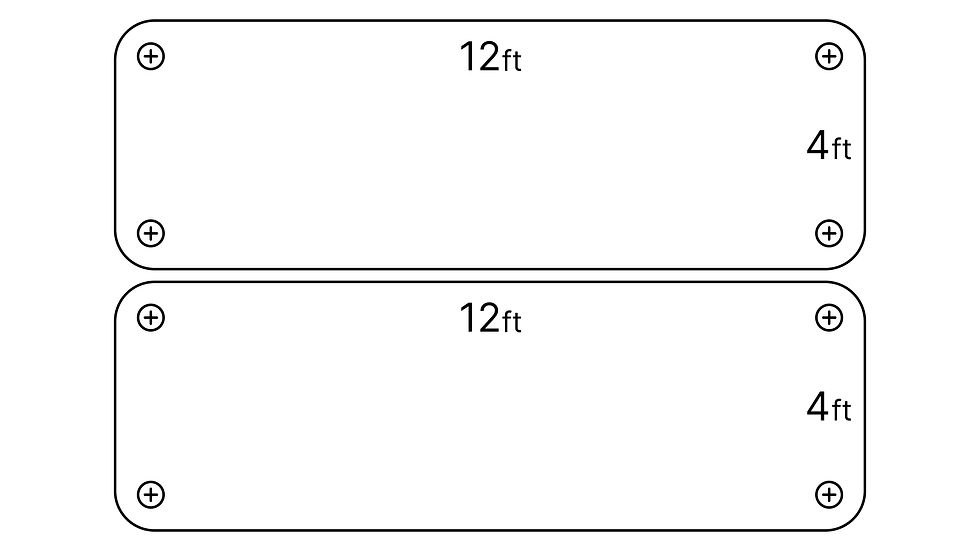What’s the Best Drywall Installation Method?
- Ирина Колб

- Jun 14, 2025
- 2 min read
Updated: Jun 26, 2025
Why Choosing the Right Drywall Installation Method Matters
When it comes to finishing walls and ceilings, drywall installation may seem like a basic task—but how you install the sheets has a major impact on how much time you’ll spend finishing the surface, and how long that finish will last.
Let’s break down four common drywall installation methods and explain which one delivers the strongest, cleanest, and most crack-resistant results.

Method #1 – Vertical Installation (4x8 ft sheets)
In this layout, drywall sheets are placed vertically, side by side from floor to ceiling.
What’s wrong with it?

It creates long vertical seams, which are harder to tape and mud.
These seams are more likely to crack as the home settles over time.
This drywall installation method is not ideal, especially for large walls.
Method #2 – Horizontal Installation (4x12 ft sheets)
Longer sheets are installed horizontally, covering more area with fewer seams.
Why it’s better:

You get about 25% fewer seams to finish.
Horizontal seams sit at a comfortable working height, making mudding and sanding easier.
It’s one of the most efficient and widely used drywall installation methods in residential construction.
Method #3 – Mixed Installation (Horizontal + Vertical)
This hybrid method combines horizontal and vertical sheet placement.
The downside:

It creates uneven stress across the wall, which can lead to cracks as the house shifts or settles.
While it might look like a practical compromise, it tends to cause more problems than it solves.
Method #4 – Staggered Horizontal Installation (Best Overall)
Sheets are installed horizontally, with staggered joints, similar to a running bond pattern in brickwork.

Why it’s the best drywall installation method:
It eliminates long vertical seams.
Stress is distributed evenly, reducing the risk of cracks.
Easier finishing with better long-term durability.
If you're aiming for clean, smooth walls that stay crack-free, staggered horizontal installation is the way to go.
Need Professional Drywall Installation?
At Tools and Hands, we specialize in drywall installation and repair across Chicago and the northern suburbs.
Whether you're finishing a basement, remodeling a room, or fixing drywall damage, our team delivers solid, long-lasting results.


